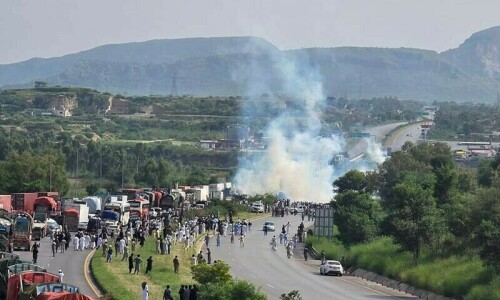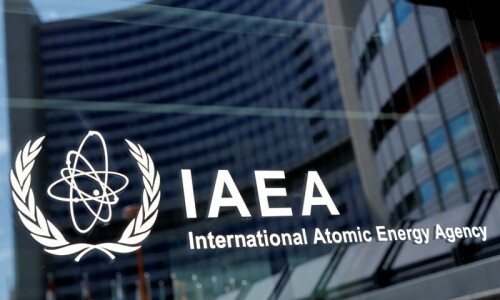A NEW study has drawn attention to the accelerating rate of glacial melt in Pakistan’s mountainous north. The problem is grave and has far-reaching ramifications for the country, yet it is as remote from the public mind as the glaciers are from the cities.
By itself, the phenomenon is too obscure for most people to grasp. But seen in the context of overall climate change and global warming, it is a reminder that Pakistan is amongst the most vulnerable countries in the world, and by many accounts, is already in the midst of the massive and turbulent impact of changing climate patterns.
Regular flooding every monsoon is a reminder of these vulnerabilities, but most people see the floods disappear quickly, and the devastation they cause retreats from consciousness as fast as the water does.
Know more: Study of melting glaciers worries meteorologists
But glacial melt is pointing towards far more profound changes in the climate, whose consequences are more unpredictable and likely to be more far-reaching than the intensifying rains.
The scale of the shrinkage in the glaciers that the study focuses on is surprising, with some glaciers losing more than a kilometre of their total length in the past couple of decades.
The challenge posed by climate change needs to be taken far more seriously than it currently is. This does not have to mean fanning panic. However, steps to mitigate the impact of extreme weather events can be taken.
Given the regularity with which monsoon flooding is visiting us now, it is obvious that better planning can be undertaken so that the damage is minimised. The same holds true for glacial melt.
We cannot reverse climate change. But we can lessen its impact. The best way to do this is to reach out to climate scientists with state-of-the-art tools such as forecasting models, and develop the ability to foresee extreme weather events.
Better cooperation between India and Pakistan is also required to properly develop a strategy to mitigate the impact of climate change, whether in the mountainous north or in the monsoon floodplains.
At least some of the melting observed, for instance, is attributable to particulate matter from the burning of coal and wood in lower elevations, which is carried by the wind and that eventually deposits itself on the ice mass in the mountains. Such problems can be addressed, and mitigative strategies developed, provided both countries learn to take the problem seriously. It is still not too late.
Published in Dawn, November 25th , 2014











































